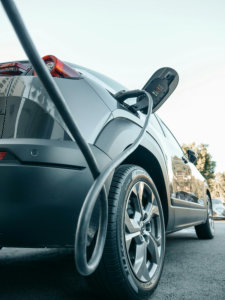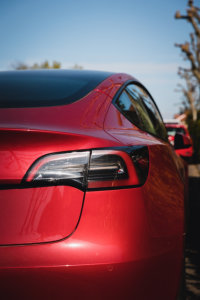EV Chargers For Residential & New Builds


If you own one of the millions of properties with your own drive in the UK then chances are installing an EV Charger will be relatively straight forward. If you purchase your own EV charger we can install it or alternatively we can supply the charger as well as fit and connect.
The majority of people when charging at home take advantage of the cheap off-peak electricity which is available on tariffs from suppliers such as Octopus energy. Charging overnight enables EV owners to enjoy very competitive prices for electricity, and you are ready to go in the morning knowing you have a full battery. Being a fully qualified electrician with 20+ years experience we can take care of any issues installing an EV charger might create.
Benefits of having your own EV Charger at Home
- Convenience – being able to set off with an appropriately charged battery.
- Economy – charging at home is almost certainly going to save you money compared to charging elsewhere.
- Efficiency – saving you time. As most EVs will do more than 200 miles and most journeys in the UK are only a few miles for many EV owners you might only ever need to charge at home.
- Safety – whilst many EVs can be charged with a three pin plug this is really a last resort option and having a dedicated EV charger will provide you with a quicker safer experience.
- Avoid queues at public charging stations which are not always thoughtfully located.
- Investment – One-day almost all houses with their own drive will have their own electric car charging facility – this is an investment rather than expense, which will add value to your home.
- Peace of mind knowing you are playing your party in creating a less polluted world.
There are two options for chargers.
In the UK there are a variety of charging cables / plugs depending on the make and model of your car – one option is to have a box with a cable for your car which when you return home you can just plug your cable straight in to the car. That saves getting your cable out of the car. The downside of that particularly going forward is when your family and friends visit you might need an adaptor to charge their car.
The alternative is a box on the side of your house where you can just plug and car charging cable in. This option might avoid you having the cable visible around the charging box.
These comments below assume you are the property owner, and you will park your car in the same spot on your property to charge.
The charging system typically interact with an App on your phone and this will require a connection to your own Wi-Fi or your network providers. If that is a problem we can add a booster / repeater from your router to enable you to get a Wi-Fi connection on your smartphone next to your car.
Charging an EV is clearly going to take more electric resources from your fuse box, and we can assess the available capacity and make any appropriate recommendations. A typical level 2 charger will operate at 230 volts and will require a dedicated cable with at least 40 amps.
If your existing electric board does not have capacity we can advise and provide some options to overcome this issue.
Where Should Your EV Charger Be Installed?
In many detached or semi-detached properties the electric box will be close to the garage if not in the garage and that will be at the end of your drive – chances are this will not be a too complicated decision.
One additional consideration is some sort of cover to keep the rain off your charger.
Possible Problems For Installing an EV Charger:-
- If the cable is going to go across a public path.
- If your car is going to be on the highway and your chargers is on your home.
- If you share parking spaces.
- Rented property – you will need your landlords consent.
- Listed building might have restrictions on what you can do to the outside.
- Challenging electric box situations preventing adding the additional wiring.
FREE QUOTE
Complete the form below for a free quote:
CUSTOMER REVIEWS
- Impossible to fault their work. 5/5
- Lovely job, lovely service, would highly recommend. 5/5
- Very clean, tidy and very efficient. 5/5
- Came round after 8.00pm and was very much appreciated. 5/5

Can you just have an EV Charger installed without telling anyone? No.
The installation of an EV Charger requires communication between you and your Distribution Network Operator – DNO. This is not the same as who you pay your bill to. The UK is divided up in to regions for the supply of electricity.
Broadly speaking:-
- Eastern side of the Pennines is covered by Northern Powergrid
- Western side of the Pennines is Electricity North West
- Midlands National Grid
- South-east and London UK Power Networks.
If you enter your postcode in the box on this page it will tell you who your Network Operator is.
Installing a home EV charger will take some time to go through the various bits of paperwork you will need. You should allow somewhere between a couple of weeks and 6 weeks so if you are planning to get an EV this might be worth factoring in to your decision. Of course you could always use public charging to bridge the gap between getting the vehicle and your own installation.
Once your EV Charger is installed you have to inform your DNO that the job is complete.
Do Not Let This Be a Showstopper
Many nay says suggest regarding EVs “the grid cannot take it” however if you charge at night this is actually very helpful to the grid. Much of the UKs energy now comes from off shore wind. The wind blows typically 24-7 somewhere. i.e. on dark nights wind turbines are generating electricity through the night with much lower demand between 11.30pm and 5.30am charging cars is actually a great use for surplus electricity. This is can be reflected in the price.
Octopus Energy offers charging form 7.5p/kWh – this is up to 70% less than the price cap rate. (The day rate is 26.37p/kWh)
Not all cars are equal when it comes to the cost of charging. It is well worth exploring this is in some detail. If you pick the “right car” with the “right charger box” you will be able to enjoy the lowest cost electricity.
What is more with the example Octopus Energy you get 6-hours of electricity at 7.5p/kWh for your whole house so an ideal time to run dishwashers, washing machines and tumble driers?
Unless you were doing more than a 100+ miles per day you would not need to charge your car every night. The average car travels 20 miles per day. 142 miles per week. Thus a typically electric car might only need charging around once per week.
The service from ISS from start to finish was exceptional. Wouldn’t hesitate to use them again and would highly recommend to others.
Roger










